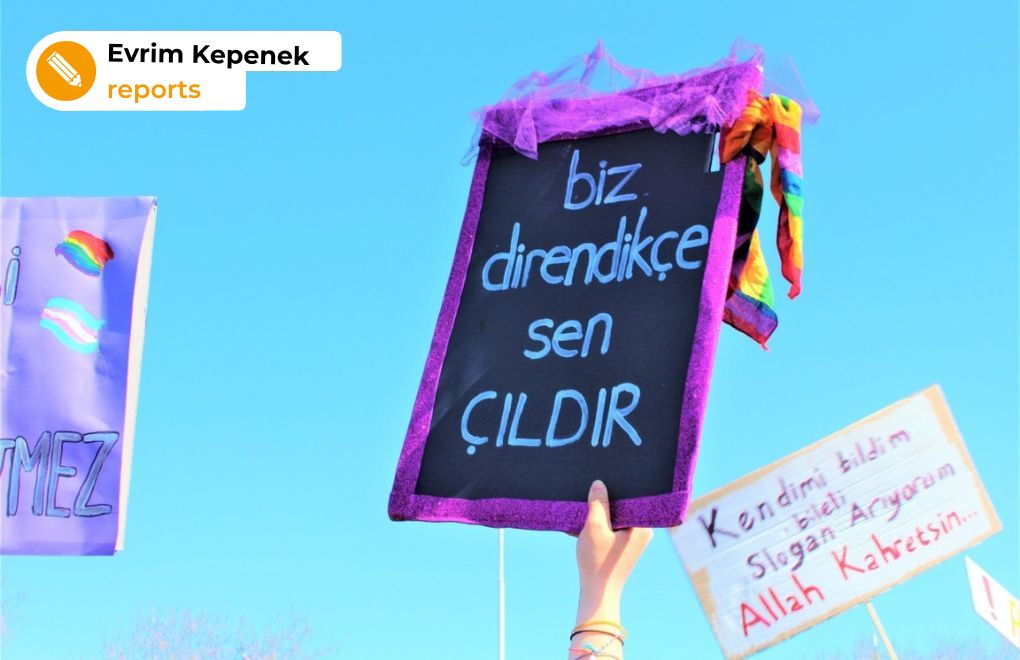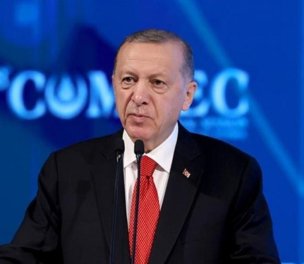Click to read the article in Turkish
Halim Kır, the chairperson of SPoD, Association of Social Policies, Sexual Identity and Sexual Orientation Studies told bianet that the proposals for amendments to the Constitution brought by the Government will result in large-scale violations of rights for LGBTI people.
Below are the questions bianet asked and the answers of Halim Kır.
How do you think the constitutional amendment will affect the LGBTI movement?
I would like to first talk briefly about the situation of LGBTI+ people in Türkiye before evaluating the proposal [on the amendment in the Constitution]. We know from the data obtained from SPoD consultation services that violence and discrimination towards the LGBTI+ and related demands from them for psychological and legal support increased in 2022. For LGBTI people 2022 was full of poverty, unemployment, and problems related to housing. Hate speech, pointing LGBTI people as a target, and trying to criminalize them with bans, detainments, and trials have become ordinary topics.
Under such conditions, we have to first say the following, even before we discuss the content of the proposal: The LGBTI people have so many problems that need to be solved and while these can only be solved with the participation of LGBTI people and non-governmental organizations, a constitutional amendment process without talking to the interested parties, carried out in a non-transparent way will do no good to the LGBTI people or the LGBTI movement, neither to our democracy nor to our society.
What is the situation with regard to the rights of LGBTI people in the Constitution at the moment? What kind of problems will it bring if the amendments are made?
Although there is no provision or expression in the constitution as it reads now forbidding sexual identity or sexual orientation, there is no article that recognizes or protects the rights of LGBTI citizens explicitly, we have to say. LGBTI movement has been requesting that the expression "sexual identity and sexual orientation" should be included in article 10 of the Constitution describing equality.
We have also, as SPoD, carried our 2012 campaign on the constitution a step further previous year and did a study on our demands in relation to the constitution. We listed the situations that constitute an impediment to equal citizenship and what could be done in order to eliminate them at the constitutional level.
We made suggestions for the right not to be subject to discrimination to be guaranteed, that the reference should be the rights and freedoms of the individual in the essence of the constitution and that human rights should be extended generally and we put forward our proposals on certain articles.
Although there is a long way to equal citizenship, today there is a proposal that will open the way for deterioration.
If the amendment is made, the violations of rights that the LGBTI people already face in a constitutional order not recognizing them with either a positive or negative reference will increase even further.
In a text which should be an envisagement and guarantee of living in peace, hate speech will be included for a section of the society. A Constitution including articles based on hate is a threat not only to the LGBTI people but to the rights of all citizens and the whole society.
"The opposition should be united"
Are there examples in the world similar to this proposed regulation? And what do examples from the world say to us about struggling against this amendment?
When we look at the world, we see that currents against gender equality and the political actors representing these currents are rising and that their policy goes hand in hand with being against democracy, and human rights, and favoring an oppressive way of ruling. Steps are being taken in some countries to reverse some achievements by women and LGBTI people.
However, we also see on the other side that large alliances are being formed based on democracy and human rights and that a struggle is being waged in order to preserve the achievements and to gain new achievements.
So this is not the first proposal for limiting the rights of women and LGBTI people, and probably it will not be the last.
What we should do looking at the examples in various countries is that all actors defending democracy and human rights should stand together in order to fight these currents. Today this can be opposing this proposal.
How can you detail your objections to the amendment proposed in article 41?
I would like to underline two issues. First of all, in Türkiye marriage is a legal status that can be realized between men and women. Therefore in fact the amendment is not suggesting anything new for the LGBTI people. So it is not correcting something wrong as they are arguing. Another thing is marriage equality is a right and requesting that this right should be used equally without any discrimination based on sex, sexual orientation, age, ethnic origin, etc. is also a right.
LGBTI people pointed finger at by saying "perverted currents"
If we examine the proposal, we see that the justification is being expressed as, "protecting the family and the family institutions against all kinds of dangers, threats and attacks and impositions of perverted currents."
It is not difficult to see that the LGBTI people are being pointed the finger at directly by saying "perverted currents" when we think about the period we are passing through and the language of the representatives of the political parties bringing the proposal.
But at the same time, an attempt to define a reasonable, acceptable family opens room for seeing, not only LGBTI people but all family forms, all citizens who are outside a limited form of the family as a threat. This opens the way for all who do not fit into a definition of a family that is vague, that we do not know, to be announced as potential criminals.
Even if it looks as if it is only a regulation on the family, this is an amendment that will be encouraging the discrimination and the violence that the LGBTI people face in all areas, from the right to life to education, from working life to political participation and to the freedom of expression and organization; and let alone protection, will be giving impunity to the aggressors.
We do not believe that a constitution calling LGBTI people perverted will be limited to this; if this amendment passes, it will bring other discriminative regulations with it and discrimination will be institutionalized.
What would you like to say in conclusion?
I would like to say in conclusion a few words to the opposition parties. We have sent them information notes, and we have held meetings with representatives of political parties and MPs.
We see that this proposal is a tool of LGBTI hatred that they are trying to create in society with the speeches of the highest state officials, with the bans, with the hatred marches organized in the last months, and that they are trying to create the polarization in the elections over this proposal. However, it is not limited to this.
This amendment is one that will be affecting this day and the decades to come, and that may become a threshold in a decline in human rights. So it has to be evaluated not only with the political concerns of today but more broadly, based on human rights and the demand of society for equality and for justice.
All MPs should oppose this proposal, both in content, in timing, and in method or preparation, and say no to it unquestionably. (EMK/PE)







